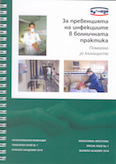Vaccines - the main tool for prevention and control of communicable diseases
The BulNoso Board led by its desire to be helpful to Bulgarian specialists of infection control and provoked by the growing anti-vaccination movement in the country, introduces a new topic : "Vaccines - the main tool for prevention and control of communicable diseases". The worldwide eradication of the human smallpox, the elimination and the reduction of infectious diseases such as polio, measles, congenital rubella, neonatal tetanus, hepatitis B and others are undoubtedly a result of achieving and maintaining a high level of herd immunity among the population through:
-
Integration of vaccines in the immunization programs of almost all member states of the World Health Organization (WHO),
-
Increase in the immunization coverage.
Unfortunately the global success in the control of infectious diseases (the absence of serious, life-threatening and debilitating infectious diseases) turned out to cause a reduction of the alertness of the society and even of the part of medical community. The need of routine immunizations has been put under question and the risk of adverse vaccine reactions has been overexposed from persons without appropriate knowledge and competence in the field. Presently, we are becoming witnesses of aggressive comments spread by medias, or in blogs, forums and programs led by "pseudo-informed" journalists and parents who could not evaluate and compare the real frequency of serious complications among naturally infected individuals with the frequency of adverse events following vaccination. In fact, the refusal of immunization leads to accumulation of susceptible (non-immune) population and a resurgence of the diseases being forgotten for many years in the developed western societies. In 2008 the outbreaks of measles were located in three continents (Europe, Africa and Asia) and nowadays, globally. The main reasons for that are two:
-
the endemic countries for measles are in a state of war (a decrease in immunization coverage), and
-
the anti-vaccination movement caused by the fear of autism induced after a British gastroenterologist’s article in "The Lancet" in 1998. The author was paid to falsify the results and prove a link between the vaccine and the development of autism spectrum disorders in children.
The most recent example for the return of a long-forgotten infectious disease is the case that shocked Europe in June 2015: a 6-year-old boy died of diphtheria in Spain after a 28-years absence of the disease in the country (the last case registered in 1986). Influenced by anti-vaccination lobbies the parents refused the immunization of their child.
The proposed first presentation includes:
-
Brief review on the historic evolution of the measures to control the communicable diseases;
-
The importance of the infectious diseases and challenges they pose for researchers and physicians - new pathogens, mutations, risk for adaptation to humans of strains originating in animal species;
-
Vaccines: types, composition, vaccine production, difficulties in the development of new vaccines, side effects;
-
New directions in Vaccinology;
-
Progress and challenges in the control of three infections: tuberculosis, hepatitis B and measles.




